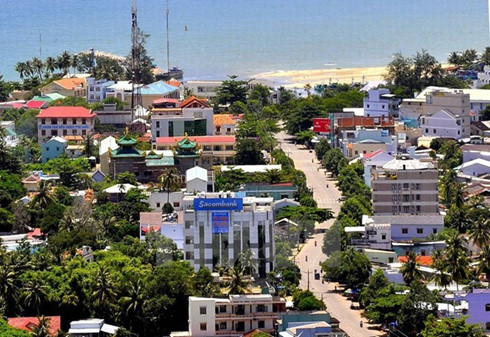The Phu Quoc Island ‘smart district’ development requires careful planning to maintain a critically important balance between conventional and modern technology, says the Vietnam Post & Telecommunications Group.

Speaking at a recent conference with officials regarding progress on implementing smart development of the Phu Quoc Island district, VNPT representatives elaborated on the concept of what it means.
There is no universally accepted definition of either smart district, or relatedly, smart city development. Both are virtually identical in concept except for whether one is talking about a city or a larger urban district.
However, the concept means many different things to different people around the globe and varies from country to country. A smart district would most definitely have a different meaning to someone living in the US than it would to a person in Vietnam or in Europe.
However, conceptually the approach is to install modern computerized technology for use by the district of Phu Quoc Island in managing its operations to promote the quality of life – such as better air quality, reduced traffic congestion, improved water quality, efficient sewage treatment or reduction of crime – for the benefit of its citizens.
It is possible that smart city technology may help create and sustain smart tourism in the future, but, there has been no empirical evidence collected anywhere around the globe that show smart city or districts have benefited tourism by any quantifiable measure.
Under the proposed model, which is already in the preliminary phase of implementation, VNPT will install sensors and equipment to measure noise and air quality, traffic and parking lot use at selected locations throughout the district.
In addition, it will begin to lay the groundwork to apply advanced technologies to construct smart transportation systems along with those to manage water resources and treat waste.
Relatedly, the districtwill be able to use this intelligent infrastructure to support research to improve the understanding of its problems, said VNPT reps. In other words, thistechnology can be used to collect and analysedata to help officials make better moreinformed solutions.
Most importantly, said the VNPT reps, these technology solutions must be used in conjunction with human intelligence. They are not a substitute for human decision making that is required to design and operate them as well as to interpret the information and make the management decisions for the district.
Stage one of implementation, which began in 2016, focuses on network infrastructure, information technology and basic services like building e-government, making Wi-Fi available throughout the entiredistrict, installing CCTV cameras and building environment observation stations.
The second stage from 2017 to 2018 will construct a data centre, a concentrated operation centre and continue giving effect to basic and smart services. The third stage from 2019-2020 will continue installing smart and added value services.
Mai Van Huynh,vice chair of the Kien Giang Provincial People’s Committee said relevant agencies need to spread word of the project to residents and channel resources to help progress on the project proceed smoothly.
Phu Quoc is the largest island of Vietnam and a district of the Mekong Delta province of Kien Giang. It spans an area of nearly 600 square kilometres and has a population of more than 100,000 people.
Source VOV